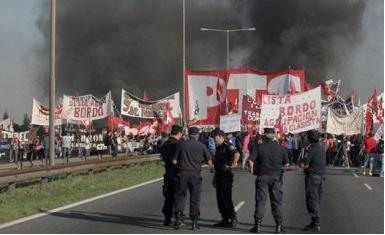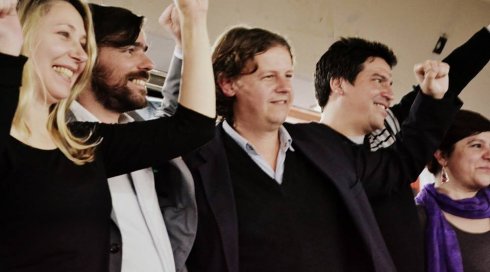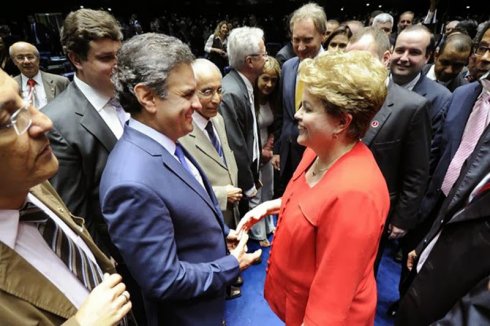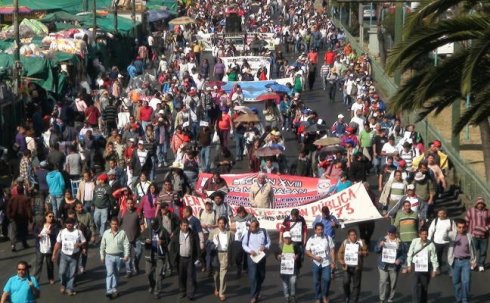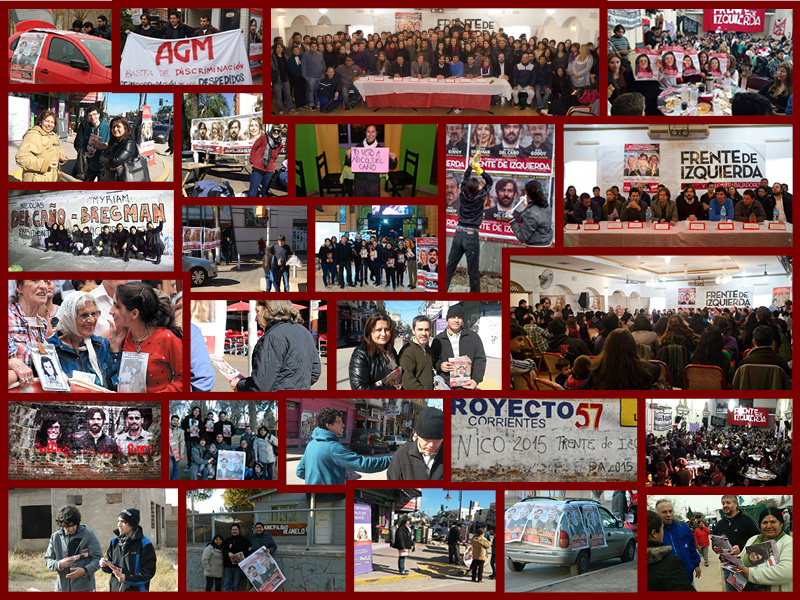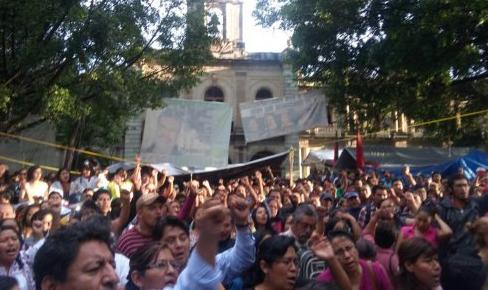Germany
Unprecedented engineers’ strike
17/11/2007
The engineers’ [train drivers] strike organized by the GDL union
represents something completely new for Germany, one of the most
stable European countries, and with absolutely the least hours on
strike. The demands of the engineers are a 31% wage increase,
reduction in the weekly work schedule and their own contract.
This strike takes place in a context of continuing economic growth,
where the cost of labor was radically reduced through counter-reform
laws promoted by the former red-green government coalition (SPD and
the Greens). Thus they converted "marketplace Germany" from the sick
man of Europe into the economic champion and the envy of the rest of
the European imperialist bourgeoisies, like France and Italy, during
the recent growth cycle of the world economy, as well as in the
framework of the discussion on total privatization of the railroad
enterprise Deutsche Bahn (DB), which is still state-owned. On the
other hand, these anti-worker measures and the favorable economic
situation, factors that have given rise to a relative recomposition of
the German proletariat, have given new vigor to the workers, who so
far this year (more than 500,000 days lost) have spent more time on
strike more than in all of 2006 (430,000 days) and 2005 (20,000 days)
(Netzzeitung: Die Deutschen lernen das Streiken wieder, October 7)
demanding their part of the abundant profits of German capital.
The engineers’ strike is exemplary, because together with demands that
the bosses call incredible and completely out of the question, it
represents a turning point in the class struggle in Germany. First,
because contrary to the last big wildcat strike in the Opel Bochum
automotive sector, this is an offensive strike by a key sector of the
proletariat that, while it is set in the tradition of negotiations
between the union and the bosses, owing to its demands, it breaks all
the plans. Second, because of the radical nature of the demands for a
proletariat accustomed and forced to negotiate through workers’
mediation, very concerned with preserving "social welfare" through
co-management of the anti-worker measures promoted by capital. Third,
because the engineers [train drivers] are a key sector in the
capitalist economy.
It is useful to remember that in Germany, as in the other leading
imperialist countries, production and circulation of merchandise,
especially as far as the pillars of the Germany economy are concerned,
like automobile production, the chemical industry, and machine
building, are organized chronometrically (just in time). That is, the
regular functioning of the German economy demands that merchandise be
in a specific place at a specific time to be used. This is why the
German bourgeoisie is so worried by the implications of the strike,
that is, the economic consequences that a long and difficult strike
could have. And it fears even more that this strike could set a
precedent for the rest of the sectors of the proletariat, that on the
one hand, could call into question the voluntary wage abstention
(wage cuts), and, on the other hand, might begin to get organized in
small unions outside of the big machines.
The bureaucracy and workers’ anger
The strike on Friday, October 13, was a complete success, in spite of
the organized media campaign by the bourgeoisie tending to criminalize
and de-legitimize the workers’ demands, with the endorsement of the
courts, that support restricting the right to strike and that have
prohibited strikes on long-haul trains as well as on freight trains.
Around 50% of the trains did not leave the platforms, and an important
fact is that in the eastern part of the country, there were zones
where not a single wheel turned. The radical nature of the demands,
and the apparent intransigence with which they defended the demands,
caused many engineers who were members of Transnet to join GDL, to
which around 80% of German engineers now belong.
However, as was to be expected, the GDL bureaucracy persists in
maintaining the routine strategy of exerting pressure in order to sit
down to negotiate. This policy, that has shown its effectiveness in
the past, by restraining tendencies to radicalization that are rising
in the rank and file, and preventing unity of the workers’ ranks in
struggle, which sooner rather than later ends up disorganizing and
disillusioning the workers, seemed this time not to give results
easily. And this is because the rank and file are tired of seeing how
their wages are eroded by inflation and the wage moderation that the
bosses impose on them, with the approval of the union bureaucracies.
As Norbert Hansen, the head of Transnet, said, "The only thing I can
see is that the GDL strike leadership is no longer master of the
situation."
Between the rock of the workers and the hard place of the bosses, the
GDL leadership found itself forced to maintain a firm position, while
signs of a relaxed attitude toward the bosses were not lacking. So in
view of the new offer from the bosses, that, according to the
bureaucrats of the GDL, is "in any case insufficient," there will be
conversations with the executives of the DB, and there will be no more
engineers’ strikes until next Thursday. Echoing the fears the
bourgeois media want to spread, for Manfred Schell, head of the GDL
union, activist and former legislator from the CDU [reactionary
Christian Democratic party], if the conversations do not yield
results, "it would be possible to have another strike," but in that
case, "the GDL will have to reckon with losing the goodwill of the
railroad customers." For this reason, "we do not wish to appear as
furious strikers, who are not thinking about the offer." And in spite
of the media campaign against the strike, that depicts an apocalyptic
prospect for the German economy, with the resulting loss of many jobs,
the population supports the demands of the engineers.
At press time, the result of this struggle still remains open. If the
workers manage to impose their will, they will have done it even
against the will of their leaders, signaling new winds for the class
struggle in Germany.
=====
Keys
In Germany, there are big unions by sector: ver.di for service
employees, "IG Metall" for the metalworkers, and "IG BCE" for the
petrochemical workers. In the case of the railroads, there are three
unions in which the workers of the Deutsche Bahn are organized:
(1) Transnet, which unites the bulk of track workers, and station and
ticket sales employees.
(2) GDBA, which represents state employees that were absorbed before
privatization of the federal railroads in 1994.
(3) GDL, German engineers’ union, that unites the engineers,
conductors, and porters. The first two groups formed a wage agreement,
agreeing with the bosses on a wage increase of 4.5%. It is important
to emphasize that each union raises its own demands, but only for
those it represents.
Translation by Yosef M.
